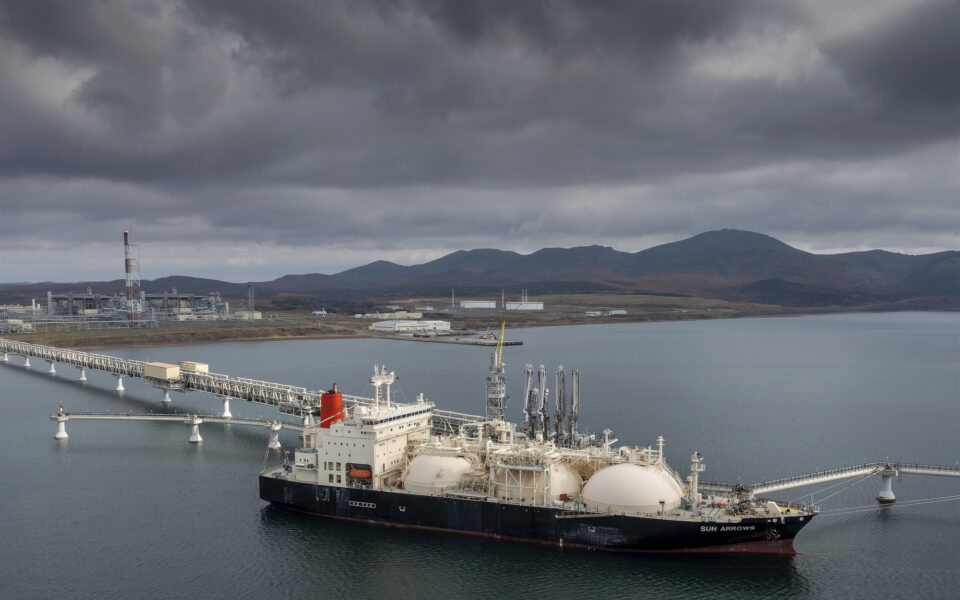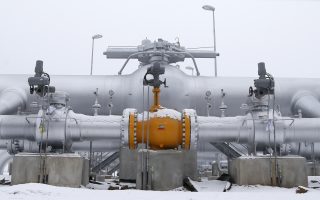Tapping into regional energy potential

The realization of the political constraints imposed by the EU’s over-dependence on Russian hydrocarbons on the geopolitical autonomy of European states has a profound impact on longstanding principles of the continent’s energy policy.
In the short and medium term, finding a substitute for approximately 170 billion cubic meters of Russian natural gas is practically impossible before 2024-25 as Russian exports are equivalent to about half of all European imports and 40 percent of the final European consumption. Nevertheless, cutting off imports of Russian gas by the end of the current decade is a feasible target for the EU, under two strict conditions: a) that it increases domestic natural gas production, and b) that it maximizes the diversification of natural gas sources and supply routes from geopolitically neutral areas.
It is worth noting that the need for EU countries to wean themselves off Russian energy is not the same for all member-states. It is however top priority for those European regions (the Baltic states, Eastern Europe, Southeastern Europe) that totally depend on imports from Russia. Closer to home, Greece will be able to reduce its energy dependence on Russia through the discovery of own deposits, as well as by growing into a regional hub for energy transfers to the Balkans and Central Europe.
This will be possible with the help of three major projects to be operational by 2024: a) the Interconnector Greece-Bulgaria (IGB) pipeline, b) the Greece-North Macedonia Gas Interconnector, and c) the floating storage and regasification unit (FSRU) in the northern port of Alexandroupoli.
However, these projects cannot cover the needs of the Balkan peninsula, even if one was to factor in Croatia’s FSRU on the island of Krk, which also supplies Hungary, or another Alexandroupoli-type terminal. Because of efforts to phase out lignite, the area (including Hungary) is expected to consume around 40 billion cubic meters (bcm) of gas per year by 2030. Taking into account Ukraine, which now consumes 30 bcm/year, demand could double. The same applies to Italy, which will need to substitute around 30 bcm/year in Russian imports (based on 2021 figures).
Greece will be able to reduce its energy dependence on Russia through the discovery of own deposits
The full utilization of Egypt’s LNG terminals for exports from Israel and Cyprus, which is anxiously awaiting data from the second confirmation drilling in the Glaucus field, will be the first to cover part of this demand as they can provide a capacity of around 16.5 bcm/year (12.2 million tons of LNG). Making use of an unspecified part of its imports from Israel, Egypt exported 10 bcm/y by 2021, but less than 3 bcm/y of that supplied the EU. It will take at least three to five years to double the capacity of these terminals, but even so it is very unlikely that more than 50 percent of that LNG will be shipped to Europe and an even a smaller percentage will reach Southeast Europe.
The conclusion is that a pipeline of 10-20 bcm/y capacity is absolutely crucial if Southeast Europe is to end its dependence on Gazprom. Here, there are only two options: It will either have to turn to Turkey, essentially violating the exclusive economic zone (EEZ) of Cyprus or that of Syria; or turn to Greece, which would not sit well, partially at least, with Turkey’s “Mavi Vatan” or Blue Homeland doctrine.
The former option would be a nonstarter for Israel, despite rapprochement efforts with Turkey. The second choice can and must become feasible if the infrastructure includes Egypt, if it supports H2 infrastructure, and if it is backed by a coalition of companies which control gas deposits. If that were to happen, some of the non-papers that have regrettably circulated recently will probably have to be reviewed.
Dr Theodoros Tsakiris is an assistant professor at the University of Nicosia specializing on the geopolitics and economics of hydrocarbons.





